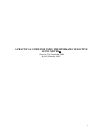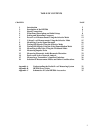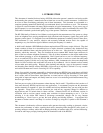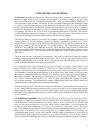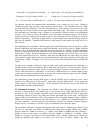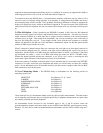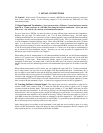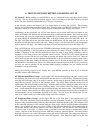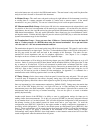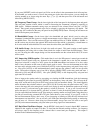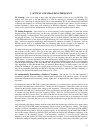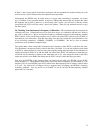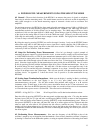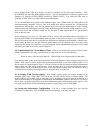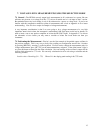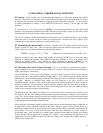3
1. INTRODUCTION
This documents is intended for those having a HP3586 without the operator’s manual or are having trouble
understanding the operator’s manual and want to learn how to use this versatile instrument. It should also
be of use to those considering purchasing one of these instruments. This document is not intended as a
complete operating manual but should help you understand what it does and how to use it. This document
is written in a tutorial manner with many simple examples of typical measurements. If you want a copy of
the HP operator’s or service manuals, I highly recommend obtaining copies from Manuals Plus at 801-936-
7000 where I obtained a professional quality copy of the operator’s manual at a reasonable price.
The HP 3586 family of Selective Level Meters was designed for the measurement of low power or voltage
levels on telephone lines carrying multiplexed single side band radio frequency signals along with lower
frequency audio signals. It’s designed to test and troubleshoot parameters commonly found on these lines.
This instrument is a very sensitive, selective and accurately calibrated receiver that’s also capable of
outputting a very low distortion signal of 0dbm at exactly the frequency it’s tuned to.
A while back I obtained a HP3586B that had been surplused from GTE from a couple of friends. They had
found a number of these for a reasonable price at a surplus electronic warehouse, they obtained all they
could and refurbished them, and then passed them on at their cost. Most had bad or leaking internal
batteries, which they removed. They also installed the more common BNC female input connectors in
place of the less common telephone connectors. Like all of these instruments on the surplus market mine
came without operating or service documentation. But I figured out how to use it to measure frequency,
use as an outboard VFO to drive my BC-610 AM transmitter, and as a receiver to search the radio bands
for interesting signals. I felt this was a very large and heavy, 60lb, instrument to do what some cheap Radio
Shack rice boxes could do and would take less room on my workbench. Also its internal receiver seemed
to have rather poor audio quality. However, after obtaining and studying a copy of the operator’s manual
and becoming more familiar with my HP3586B, a light went on in my head. I realized it’s a very versatile
and useful instrument and I wasn’t even using 10% of its capability.
Please, first read this document sequentially to best learn about your HP3586 since each chapter will build
on the experience you gain in previous chapters. We’ll start off describing the instrument so you’ll know
how it works, what it can measure, then learn how to control and set it up by discussing it’s front panel
along with its inputs and outputs, and finally learn how to use it for conducting useful measurements using
hands on type examples.
Feel free pass on copies of this document to others that may find it useful. I’ll publish revised versions as I
learn more about my HP3586 and discover new applications. I recommend you print out this document
and the schematics in Appendix C, place it in a binder and add any additional notes you may wish just after
the Appendix. Please don’t revise the document, just send me any suggested changes or additions at
n6py@arrl.net and I’ll include them in future versions. Otherwise there will be different versions in
circulation with no revision control causing mass confusion for those attempting to use it. I’m also
releasing it in the Adobe PDF format to discourage uncontrolled changes and for easy Internet
downloading so I don’t have to get into the book printing and binding business. I copyrighted this
document to further control it and keep it’s use free of charge by using the © symbol on the document’s
title.
This document is dedicated to all those amateur radio operators that enjoy working on electronic circuits,
measure the performance of radios, repairing their radios, measuring audio through HF radio signals, or
restoring amateur or military radios that are keeping the hobby of amateur radio alive, well and interesting.
So read on and I hope you enjoy learning about the wonderful world of the HP3586.



